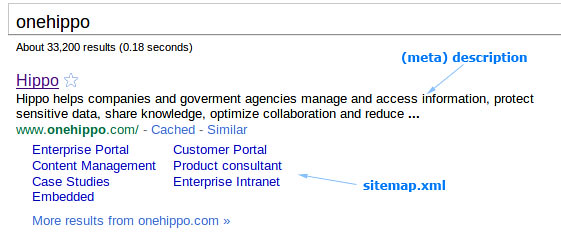Great web experiences
Flying monkeys and why your marketing department is awesome
Everyone in the meeting room stares around with a surprised look on their face. Why ooo ooo why did I put in those monkeys? Then the CEO starts to clap. He loves it. Now everyone starts to clap. They all love it. You're the star.
You're asked to create some traction online for the event. Everyone who signs up and wins a little lottery can see the monkeys. With a couple of clicks you create a new event website using your CMS platform. And a mobile app. Your designer adjusts some javascript and css to get into the canal theme. Your video editor adds loops and track suits. Your editor Linda adds a form with a lottery. And she creates a press release that calms people down. The monkeys are safe. They have parachutes.
It seems to go well or you, but after a week your guy at Wonder-ears is a little worried. He wants to boost their image for sure, but he also wants to sell some hearing aids. They're not getting a lot of traffic yet. Aren't you targeting too much for young hipsters with these monkeys?
You start to panic. You're very creative but can't handle all these questions. You think out of the box. You suggest to add some very loud fireworks to expand the demand for hearing aids to a new and younger demographic. This is too much out of the box. What are you doing? Wonder-guy strangely enough likes your idea, but definitely wants to check with legal. Ok, now what?
Linda says you don't have to worry. You already track all the visitors on your website. Wow, she says, our website went viral yesterday. Twitter is blowing up. Some B-level actors and sport stars are trying to be associated. This is good news. Linda checks the statistics. Just a little bit leaning towards a younger demographic, but definitely lots of middle aged and older people too.
The older people don't like the fireworks, she says. Their bounce rate is really high. She changes to milder images for older people. No fireworks.
And in the sign-up form she's adding some conditions. If you are older than 35, you definitely can go to the event. If you're younger, you'll have a small chance to go.
Hmm... Only 2% clicks through to the wonder-ears website. That's why wonder-guy wasn't happy yet. Linda runs an A/B test for the click-through banner. We'll know soon if that will make things better.
Your panic attack stops. You sit down in your chair. You think back to how everything changed since your marketing department dragged and dropped the developers and took matters into their own hands.
On metadata in your web environment
A lot of things are said about the use of metadata in a web environment. And rightfully so, metadata is important. That's why I want to do a couple of blog posts about this topic. This being the first: Which part of metadata is really important and which part isn't and how does it work in Hippo CMS?
Let's start with a definition of metadata:
Wikipedia: Metadata (metacontent) is defined as data providing information about one or more aspects of the data
Alright, so metadata is not really part of the content, but tells us something about the content. This page is in English, so we could have a property on this document which tell us it's in English, like so:
Now, the above isn't following any standard, I just made up my own. You can also make up your own schema's if you want. Go for it. However, don't be surprised when external applications will not recognize the data. In this case a web reader for blind people wouldn't know which language is used. That's why mankind defines standards. The standard way of showing English in HTML, is by starting your page like so:
And that's a lot smarter! So, now that we established the basics of metadata, let's dive into the most common metadata remarks I heard from clients at the start of a web project:
"Metadata is important for SEO, right?"
Yes, some metadata is important for search engines, other metadata is not. This is a blog I wrote about SEO earlier, but I'd like to dive a bit further into the metadata part this time. The BBC did extensive research on web guidelines, SEO and accessibility, which resulted in this advise on metadata for both editors and developers of their websites. A great starting point for your own set of rules! Here's an example that combines the above for your html pages and will probably satisfy 95% of your wishes:
Of course adding other terms in Hippo CMS is easy. If you want to do more, you could have a look at: Seo consultants on meta-tags and Dublin Core ( a standard for metadata ).
"Is there an important difference between content and metadata in a document type? And what do you expect us to define in order for developers to get started in Hippo?"
First of all, what is a document type anyway? A document type defines all fields [1] that can be present in an instance of the document type. Let's say you have a news document type with 4 defined fields: title, date, rich text editor and a metadata field copyright. That way in Hippo CMS you're sure editors only create just these fields and your news data is structured. Most consultants define all document types and fields first in an excel sheet. Probably you can do this yourself if you have one example. Based on this blueprint, document types can easily be created using the document type editor in Hippo CMS, like so:
And what's the difference between the copyright field (metadata) and the title field (content)? You can search, sort or filter on either of these. Both field types can be used to show in the page, an overview of news documents, html metadata, mobile website, webservice, RSS, multiple websites, etc. So it doesn't really matter from a technical standpoint which one you choose [2]. As a matter of fact the difference in above example is superficial, I just added "metadata:" in the label of the copyright field. Another visual way of doing it, is making it a different color or have all the metadata on the right hand side of the document as is done in a screenshot below.
So if it's technically unimportant, why did I add it then? Because the difference is important for an editor. It should be logical and understandable why you're entering the field. If the field is just there without something indicating that it's metadata, an editor could think the field is not being used and just leave it out [3][4]. Worse, editors can have different thoughts about what to fill in and you're ending up with a lot of inconsistent content and a waste of time and effort. Choose whichever guideline is logical to your use case. For example: when a field is visible in the design of a detail page, then it's a content field. When a field is used as a filter in faceted search or otherwise it's metadata.
Just a metadata field called "tags" or "categories" as is done in above screenshot is asking for useless content as well. Describe for an editor why you're being asked to fill in the field. More on tags and categories in a later blog.
Which metadata do I get by default in Hippo CMS?
The system adds the following fields automatically and you won't be able to edit them in the document:
- createdBy editor X, Y or Z.
- creationDate
- lastModificationDate
- lastModifiedBy
- publicationDate
- language (since Hippo CMS 7.5)
The above fields are used for internal reports, searching in Hippo CMS, etc. Also these dates are used by the workflow to (un)publish a document on a certain time. Technically it's possible to show these fields in your website or sort on them. However, it is usually better to add them to your document type, so you have full control over it [5].
That's it for part 1. Hope this blog is useful to you. I'll post part 2 soon.
[1]: Including type of field, which I didn't mention for simplicity's sake. You can see some of the options in the screenshot like Boolean, String, Date, etc. Field type options also include rich text editor, internal link and many more.
[2]: The exception would be for linked/inherited document types in faceted navigation/search. Then, in order to perform well, a field needs to be on a property of the document node itself if you want to sort on it, do range queries or use it for the faceted browsing. See documentation on the Hippo CMS developer wiki for more information.
[3]: Of course you can make the field required, but that usually doesn't help. Editors will just add nonsense and you'll be worse off.
[4]: In larger organizations we often see a dedicated team responsible for just editing metadata. This can be very useful, but make sure you're not unnecessarily slowing down the process.
[5]: The exception would be the fields that are used just for the HTML metadata, like DCTERMS.created and DCTERMS.modified. You can best use the systems properties for this, because it will be a step less for editors.
Top 10 reasons for open source success - Is the Hippo up to the task?
In real life, a Hippo is a fairly quick animal. It can run up to 25 mph (40 km/h). I even heard rumors of people saying the animal passed at a striking 30mph! That's an amazing pace. Even more so if you realize they weigh around 4,000 lb (1.800 kg). Unbelievable.
A blogging Hippo however isn't always that fast. Almost two months ago thechangelog posted a blog summing up the top 10 reasons why an open source project is not used. A couple of days later, Stefane Fermigier of Nuxeo ECM posted a reply asking "How does Nuxeo stack up?". As for the Hippo, well... unlike the real animal. This Hippo runs a little late. You're lucky you didn't really wait for him. Crossing the finish line 50 days behind to finally form a response. Weighing each word carefully with his 4,000 lb of body weight. So today is the day that the Hippo finally hopes to cross the finish line.
It seems like Nuxeo did stack up to all the questions and maybe therefor is used and supported by an engaged community of developers. Is Hippo up to the same task? You'll soon find out. But before we start. Why don't we give our little guy a cheer? Hurray. Hippo. Hurray.
The ten questions:
1. You don’t have a friggin’ Readme
All info can be found at our project's website. It includes installation instructions, links to register on mailingslists, our bugtracking system, which developers contribute to the source code and it describes which other open source projects have been used. Hippo likes to repay the open source communities by participating in these projects. Either by contributing code or helping other developers on mailinglists. Since our external source code mostly relies on projects from the Apache software foundation, Hippo likes to sponsor and participate at their conferences.
2. You don’t include tests, specs, features, examples
We use Hudson and Sonar to continuously monitor the projects.
The features and possibilities are best described at our company website: www.onehippo.com. Each plugin for Hippo CMS usually contains an example and documentation. A showcase demo website can be found here . It features a website for a non-existing sustainable company called Hippo Go Green. We tried to make a showcase project combining widely used plugins while keeping the demo simple enough for people to understand. If you're missing features or have any other suggestions, I would surely appreciate your feedback. You can mail me directly (mdotbrandatonehippodotcom) or add a comment on this blog.
3. You have no project home page
http://www.onehippo.org.
4. You need design help
For new features we often make a couple of prototypes and organize usability testing during the whole process. This generally results in a user interface that is both very user friendly and cool :)
5. You don’t have a domain name
onehippo.com and onehippo.org
6. You don’t have a Twitter Account
We have one account for all Hippo related twittering: http://twitter.com/#!/OneHippo. Our blogs, like this one, can be found on planet.onehippo.org/.
7. Your licensing is unclear
That's an insult ;) We have a license.txt in the svn code repository of each project. A general description can be found on our www.onehippo.org.
So how do we make money? Check out "what we sell" on www.onehippo.com.
8. You don’t reach out to me
We often organize webinars; always announced on our company website and free to join. Of course we twitter about them as well.
We have a user group on linkedin. Video's can be found here including one that will help you start developing in no time. The best responses for (technical) questions by developers can be found on our mailing lists / forum. You'll generally receive great responses if you're new or found a difficult problem to solve. If you want us to invest more time to help you succeed? We offer guaranteed response times and a personal touch through our support subscriptions. We have one that fits in any situation.
9. You don’t speak about your project at conferences and meetups
Sure we do. Why don't you join our get togethers? We regularly organize them and we're announcing one again soon. Just sign up ;) Next week we're at the Gartner summit in LA. Feel free to visit us at our stand.
If you're interested in having a meetup near you? Ping us on twitter!
10. You didn’t submit it to The Changelog
Your slogan reads: "Open source moves fast, keep up". Okay, from a blogging perspective we're clearly not up to that task yet. But I'm pinging you right about now.
Hurray!
Hippo in Boston
It's been just over a week now, since Hippo opened up the Boston office. Colleagues, implementation partners, clients and friends have been asking me what the place looks like. Here's a first impression. Hope you like it as much as I do.
The Hippo Boston office is located next to the Kendall / MIT subway stop (red line). You can be in Boston Central or at the airport in a matter of minutes. And of course, you can also park your car.
The surrounding high tech companies and innovative MIT startups create a great working atmosphere. It's nice and quiet most of the time. Mostly because there are phone booths when you need to make a call; a feature that has been requested for years on end by my Dutch colleagues. Well guys, you can finally work peacefully.
Now turn on your sound system and play the video below...
That's right, you hardly hear anything. Nice, huh ;)
Meeting rooms
An example of something I specifically like about the building. We share meeting rooms on a first come, first serve basis. The system to reserve the room is so nice, you'd almost reserve the room, just because it's so neat to reserve the room. Watch the video:
A great city
Boston is great. Universities always give a city a nice touch. And saying Boston has a couple of them would be a big understatement. I specifically like the initiatives to encourage biking around the city. It matches well with the Hippo credo to provide each employee a bicycle. Not surprisingly. It's nice to bike to work. Not just because it's healthy, mostly because it's fast.
By the way. The bike in the picture is a Hippo bike and that little orange dot riding the bike is a Hippo :) This Thursday I'll probably see a lot more of the city as Saint Patrick's Day is coming up. I'm supposed to be getting ready for it. Okay. I think I am ready.
So, why an office in Boston?
Hippo came to Boston to better serve the growing number of East Coast clients and partners. We've seen an astonishing amount of interest coming our way as Hippo CMS is clearly capable of serving the largest web properties in the world and more and more Americans start to experience our products. Yes, word of mouth is still a powerful marketing tool. Furthermore, most medium to large companies realize open source isn't just a viable alternative to closed source, it's becoming mainstream.
A second big reason to come to Boston is the time difference with Amsterdam compared to Amsterdam / San Francisco. We can just work better together to integrate our development efforts.
Looking for an interesting job?
As a last note... if you're interested in working for us as a developer in our brand new Boston office? Feel free to get in touch. We are hiring...
Not open minded after all
I must confess. I'm not open minded after all...
My MP3 player was lost and I needed music. So last weekend I went to buy a simple MP3 player. I like gadgets the Spartan way. Not too many buttons to press, not too many things that go wrong. I thought I found just the right one. A Philips MP3 player.
There were 2 versions of it. A 30 Euro version with 2 gigabytes of storage and a 40 Euro version with 4 gigabytes of storage. I like cheap, so I opted for the 30 Euro one.
"Let me get that for you", the guy said. "Hmm... sorry sir, I only have the cheap one in pink", he continued.
So you can guess which one I bought. Yep, the 40 Euro one in grey. The smart sales guy is taking advantage of my short minded mind. Just offer the cheap one in pink and a sensible one for a bit more and most guys will end up spending a bit more. It made me wonder. If Hippo wouldn't be fully open source, we could pull the same trick on people.

"So sir, you don't like that pink Hippo logo with the hat in your CMS? Well, we can set you up with a nice blue logo. Very representable. Would you like to pay cash or credit card?"
The little secret about Search Engine Optimization
Your average Hippo customer isn't stupid. She's smart. Let's call her Paula. I like that name. Paula. Now let's say Paula is a web analyst and works for a large non profit organization. And because she's smart, she's migrating to Hippo CMS 7. Before she did this, she read some extensive reports on SEO. Her company even hired an SEO consultant to verify her website. But she also noticed a lot of Hippo websites got the highest rankings.
She asked me why. Did I know a little secret perhaps? My answer is yes. I do have a little secret for Paula...
But first I will tell you exactly what Paula knows. So here it goes.
Paula knows
Human Readable URL's are important. Luckily she got it out of the box in Hippo CMS.
Paula knows where the description text in her Google search results comes from. See picture below. Better yet, she knows how she can easily manipulate it in her own Hippo CMS.
A friend of Paula told her about a thing called a sitemap. Although search engines won't promise you they will use it, it is pretty nice if they do: giving visitors an overview of your website in search results. See picture below. The Hippo forge has a nice sitemap plugin using the sitemap standard. The installation is easy. That's why Paula has it now.

Keywords
Things started to get a bit messier with a discussion about keywords. Paula knows it can be a lot of work to add well chosen meta keywords to your pages. She used to give the editors guidelines to try and match all the important search queries in Google; adding keywords for higher search rankings. The editors had entered them extensively in their old CMS and I didn't want to migrate them, for they weren't very helpful at all. Even worse, they were always the same.
Why don't you migrate them? She asked. Google likes them, I read it in my report by the SEO consultants.
So I explained her what a nice job it must be, being an SEO consultant. It seems you can basically write whatever you want. Why? The search ranking algorithm isn't public. So a bit of the mystery remains. I'm not saying meta keywords will hurt your search results. But they won't help you either.
Don't believe me? Check this guy's video:
Google does not use the keywords meta tag in web ranking.
So don't spend your time on keyword optimization for external search engines. Rather spend it on keywords for use within your own website. For example in your own search engine. Try making sure the list of keywords in your article is short and relevant. Then people will find what they are looking for faster and you can influence your website's search results. But searching within your own website is a different topic altogether. I might write about that another time.
Link farms
Very important is the amount of linking between you and other websites. If you link to a normal relevant website and they link back, it's pretty good news for your search results. However a link farming doesn't work. That is bad news for your ranking. Broken links on your website don't help you either, so luckily Hippo CMS has a lot of tooling for that.
Performance matters
Paula didn't know performance mattered for search engines. It does. Check this page by Google about it.
I'm glad speed matters. I like fast websites. And others do too! It will get give your visitors a better feeling of usability. Higher performance leads to more page views. People return more often to fast website. Some people argue it's the most important feature of your website. Anyhow. I'm glad Hippo can provide you with lightning speed.
Nice, nice, nice, but now I want the secret
So you're wondering why Hippo websites rank as high as they do? What is the secret? Is it about all the rules applied above? Partly.
The real secret is your content. There's no smart technical feature giving you high rankings without having relevant content people like. So the amount of pages with nice relevant articles is the little secret I'll give away. And that's exactly what editors in Hippo CMS can focus on. A search term in the title or introduction is more important then a search term in the body. But you don't have to tell people that. They do that already.
And by the way. Paula is very happy and is getting high search results. Are you next?
All characters and events in this blog — even those based on real people — are entirely fictional.









